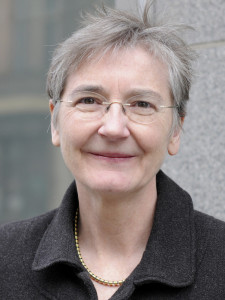
Something unprecedented is happening in the Netherlands, France, and Germany. It is not that all three countries face important elections in March, April–May, and September respectively. Nor is it that all three have spawned populist, anti-EU, and anti-Islamic movements (although much smaller in Germany than in the Netherlands and France). Nor is it that these movements have praised Britain’s June 2016 vote to leave the EU and the November 2016 election of U.S. President Donald Trump, whom they see as a vindication of their policies and a harbinger of the eclipse of the EU.
Instead, it is that moderate leaders are hitting the campaign trail to extol the values of the EU. This is new. Slowly but surely, pro-European leaders are tapping into a sentiment present among many pro-European associations across the EU that are run and supported by volunteers. These associations are largely unknown to a wider public that is often bombarded by social media and populist politicians, who somehow are simply more attractive to report on than those who support the idea of the EU.
Yet the hundreds of pro-European movements around Europe do not want populist, anti-EU forces to hijack their future, drown out their voices, and break up the EU. What is happening in the Netherlands, France, and Germany is good news.
Alexander Pechtold, the leader of D66, the Dutch centrist liberal party, is on course for his group to become the third largest in the Dutch parliament, according to opinion polls. Were that to happen, it would be the party’s biggest achievement since the early 1990s. The reason: Pechtold wants to defend the Netherlands’ traditions of tolerance and openness, on which the EU is based.
Unlike Dutch Prime Minister Mark Rutte, the leader of the center-right People’s Party for Freedom and Democracy (VVD), who has moved farther to the Right to win over voters from Geert Wilders and his radical populist party, Pechtold has not wavered in defending Dutch and European values.
“The success of populist movements across Europe is not inevitable, despite Britain’s vote to leave the EU and the election of U.S. President Donald Trump.”
Judy Dempsey
“I am aiming at the real liberal voters,” he said during a recent rally. “We are getting them from all over the spectrum.” There is little value in speculating whether the polls will be confirmed on election day, March 15. The point is that those who support decency, values, and tolerance have found a voice in Pechtold.
To the south, in France, Marine Le Pen, who leads the right-wing National Front and wants to take France out of the eurozone and the EU and turn the country’s back on globalization, is facing a challenger. The young former economy minister Emmanuel Macron seems to have decided he has nothing to lose. For him, France’s future is in Europe. His visit to London on February 21 to woo the French community there but also to speak out for the EU was novel. Also, for him, France’s success in Europe rests with reforms—though he still has to spell them out.
One of Macron’s main attractions is his ability to reach out to young people who have grown up in a Europe with open borders. They have also grown up in a France that for the past thirty years has shunned any major overhaul of its sclerotic economy and in which youth unemployment has been staggeringly high, passing 26 percent in December 2016.
What is more, they are fed up with the self-perpetuating elites who have given rise to the politics of self-entitlement and the corruption that goes with it. The Republican candidate and former French prime minister François Fillon, whose wife was allegedly paid for doing nothing during her five years as her husband’s parliamentary assistant, epitomizes this disdain for the abuse of power. Extraordinarily, Fillon must have hoped his apologies after the scandal emerged would have been enough for him to stay in the presidential race. The polls think differently, as Macron extends his lead over Fillon and closes the gap with Le Pen. In short, the National Front leader faces a real challenge.
Over in Berlin, Martin Schulz, a former president of the European Parliament who returned to German politics in January 2017, has given all parties a real jolt. Within weeks of becoming the candidate of the Social Democratic Party of Germany (SPD) to challenge Angela Merkel’s bid to remain chancellor for a fourth term, the SPD is now ahead of Merkel’s conservative bloc for the first time in a decade.
Schulz has become so popular in such a short space of time because he is a new face (but not a young one, at sixty-one years old). He is plainspoken. But for young people, he is also a voice for Europe, and in a passionate way. Merkel defends the EU and its values, too. And she is respected for that. But Schulz has a different style and language.
Again, it’s too early to know if Schulz is just a passing phenomenon. But for the moment, the Schulz effect has had one other interesting impact. Support for the anti-immigration, anti-EU Alternative for Germany and for The Left, a party based mostly in the former East Germany, has fallen. That shows that previously disaffected SPD voters, who had drifted to the far-right and far-left parties because the Social Democrats had lost a sense of identity and direction as Merkel’s coalition partners, have returned to the center-left.
These trends are just that—trends. They may last, or they may falter. But it is clear that there is untapped support in Europe for the EU. Brexit and Trump need not lead to the self-fulfilling prophecy of the EU’s demise—much as Euroskeptics and Trump’s advisers would enjoy it.
Here’s the link to the original article, published first by Strategic Europe.


